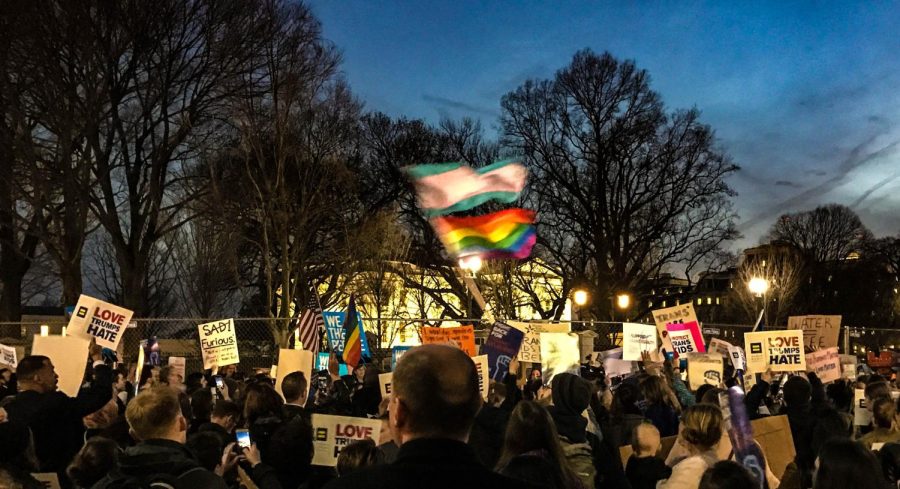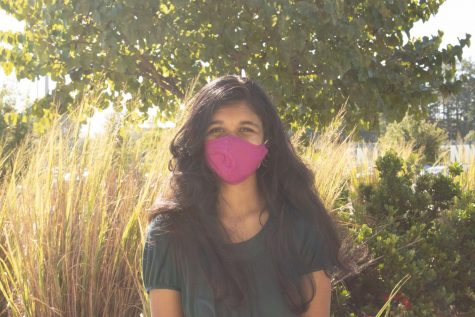Florida’s “Don’t Say Gay” Bill May Change the Lives of LGBTQ+ Youth
March 3, 2022
On Monday, February 28, Florida’s Parental Rights in Education bill, dubbed the “Don’t Say Gay” bill by critics and opposition, passed its final state Senate committee stop, moving on to a vote on the Senate floor.
The bill was passed by Florida’s House of Representatives on Thursday, February 24, and is being lambasted for its “prohibiting [of] classroom discussion about sexual orientation or gender identity in certain grade levels or in a specified manner.” The 69-47 vote followed weeks of worry, anger, and general attention over the legislation from both national and international media.
Republican Representative Joe Harding, who introduced the bill, spoke to legislators on the House floor, stating, “Creating boundaries at an early age of what is appropriate in our schools, when we are funding our schools, is not hate.” He insists the bill “empowers parents” because it puts their child’s discussion of sexuality and gender in their hands.
Republican Senator Dennis Baxley, the sponsor of the state Senate version of the bill, countered criticisms of its “anti-LGBTQ+ sentiment”, affirming, “[The bill] does one simple thing – it decides who’s in charge…I’m not trying to negate the values of teachers. I’m just trying to come back to center point. Parents must be in charge of these decisions.”
On the flip side, some of Florida’s politicians are outraged by the bill’s implications and potential implementation. On Thursday, Representative Carlos Guillermo Smith, a Democrat a part of the LGBTQ+ community himself, said in a heartfelt speech on the House floor, “We are in distress because this bill is yet another attack on our community…[The bill] sends a terrible message to our youth that there is something so wrong, so inappropriate, so dangerous about this topic that we have to censor it from classroom instruction.”
State Senator Lauren Book (D), a former educator, said she does not remember “teaching LGBTQ propaganda” or “breaking any Florida law by telling a parent that they couldn’t review [her] lesson plans.” She stated on Monday, “Florida educators are not indoctrinating young children with age inappropriate or developmentally inappropriate curriculum. These are professionals.”
State Senator Jeffrey Brandes (R) had attempted to replace the mention of “sexual orientation and gender identity” in the bill with more sex education-related “human sexuality and sexual activity”, but this failed in a vote along party lines.
Monday’s public testimony lasted nearly an hour, with students traveling seven hours to share their opinions about the Don’t Say Gay bill, a majority opposing the legislation.
Alongside these pushes against the bill is Florida’s Say Gay rally, which took place on Sunday, February 27. Several attendees have put politicians in support of the bill under fire, including Florida’s Governor Ron DeSantis (R), and argued that silencing sexuality and gender education in schools and making it a “taboo” topic will only worsen the already high risk of depression and suicide in the LGBTQ+ community.
Many others are in agreement with this sentiment. The Trevor Project, an LGBTQ youth suicide prevention and intervention group, found in a 2021 national survey “42% of LGBTQ youth seriously considered attempting suicide in the past year, including more than half of transgender and nonbinary youth.” The CEO of the project, Amit Paley, expresses that, “Lawmakers should be supporting LGBTQ students and their families and encouraging schools to be inclusive, not pitting parents against teachers and erasing the LGBTQ community from public education.”
An anonymous Green Level 9th grader shares his own opinions about the bill’s implications as a member of the LGBTQ+ community himself, stating, “[The politicians are] not scared of people learning about LGBTQ+, they’re scared of people being a part of LGBTQ+.”
The Don’t Say Gay bill is not the only measure in recent times that impacts LGBTQ+ youth. Texas Governor Greg Abbott (R) ordered the state’s Department of Family and Protective Services on February 22 to investigate transgender healthcare and sex changes for potential child abuse and has urged state Republicans to treat these procedures in that manner. In less than two months this year, there have been more than 170 anti-LGBTQ bills filed by conservative state legislators. And according to PEN American, a free-speech advocating nonprofit, there are 15 other bills in consideration across the country that will restrict discussions about LGBTQ+ identities in schools.
The Don’t Say Gay bill alongside several other actions leave both critics and supporters asking how these decisions affect the LGBTQ+ community, especially its youth.







